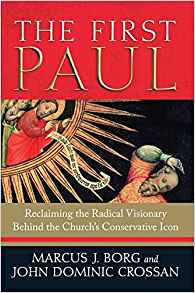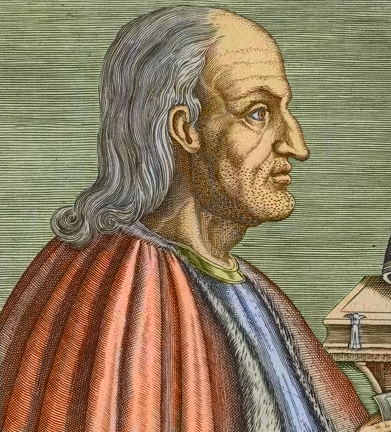Paul Rhodes Eddy and Gregory A. Boyd are widely reputed among fundamentalist circles for having authored a “most important book . . . for critical assessment of the Gospels”, “a powerfully argued defence of the historical reliability of the Synoptic Gospels”, “a thoroughly compelling cumulative argument – one of the very best available – for the reliability of the Synoptic Jesus tradition”, The Jesus Legend: A Case for the Historical Reliability of the Synoptic Jesus tradition. Average Amazon.com rating is 4 and a half stars out of a max possible of five!
I have repeatedly been urged by fundamentalists to read it for myself. So now I have begun to do that. I really had hoped for something substantial after the hype, but so far have been a bit disappointed.
To take just one point here, — Eddy and Boyd’s argument against eighteenth century Enlightenment sceptical philosopher David Hume‘s writings against belief in miracles — pages 61-63 of The Jesus Legend. (I have already addressed another point or two of theirs and will, no doubt, address more. The complete set will be found in the Eddy and Boyd link under BOOK REVIEWS & NOTES on the right margin of this blog.)
Here’s how Eddy and Boyd sum up David Hume’s argument against believing in miracles:
Hume defined a miracle as “a transgression of a law of nature by a particular volition of the Deity, or by the interposition of some invisible agents.” With this definition in hand, Hume concluded that it is always irrational to believe a miracle had occurred. To Hume’s way of thinking, one must weigh the probability of a claim that a “transgression” of a natural law (a miracle) had occurred against . . . every confirmed instance of this law being confirmed . . . (pp. 41-42)
Thus against a report that one man had risen from the dead must be counted the number of times people who die stay dead. Eddy and Boyd rightly conclude that such an argument means that no historian can ever rationally believe a report that one man rose from the dead. But they go further and argue that this argument is invalid, and they argue it is invalid by directly misrepresenting what Hume actually wrote. (I’d like to think they had not read Hume directly for a long time, or being rushed they over-relied on common wrong assumptions about what Hume wrote.)
They continue:
The Perfect Bridge Hand – A Circular Straw Man Fallacy
(E&B cite N.Geisler’s The Baker Encyclopedia of Christian Apologetics, 1999, for this)
One problem with Hume’s line of reasoning is that he seems to associate rational thinking with adding up evidence rather than weighing evidence. To rationally determine whether one has been randomly dealt a perfect bridge hand, for example, one wouldn’t simply add up all the possible alternative hands one could have been randomly dealt and compare it with the odds of getting a perfect bridge hand (1,635,013,559,600 to 1) Were this the case it would obviously never be rational to accept that one had been dealt a perfect bridge hand — even if, as a matter of fact, one was holding one!
Eddy and Boyd have subtly twisted Hume’s argument in the above passage. Where Hume made a case about the likelihood of predicting a certain event, Eddy and Boyd give the impression that Hume would dispute the possibility of a past event known to have happened.
Eddy and Boyd:
The way a rational person goes about determining whether or not he or she has been randomly dealt a perfect bridge hand is by looking at the empirical evidence. Is the person in fact holding a perfect bridge hand?
And THAT is exactly what David Hume was arguing. Eddy and Boyd appear not to have brushed up on Hume’s argument before attempting such a “refutation”.
So to let David Hume speak for a moment from his famous passage on miracles, Section 10 of An Enquiry Concerning Human Understanding:
Though experience be our only guide in reasoning concerning matters of fact; it must be acknowledged, that this guide is not altogether infallible, but in some cases is apt to lead us into errors. One, who in our climate, should expect better weather in any week of June than in one of December, would reason justly, and conformably to experience; but it is certain, that he may happen, in the event, to find himself mistaken. However, we may observe, that, in such a case, he would have no cause to complain of experience; because it commonly informs us beforehand of the uncertainty . . . . All events follow not with like certainty from their supposed causes. . . . so that, in our reasonings concerning matter of fact, there are all imaginable degrees of assurance, from the highest certainty to the lowest species of moral evidence.
A wise man, therefore, proportions his belief to the evidence.
In other words, Hume is arguing that the odds of experiencing worse weather in any one week in June than in December are small, but not impossible. And the mathematical odds of being randomly dealt a perfectly bridge hand are so astronomical that it would be irrational to expect to be dealt one, but if one was dealt one, then one knows just how astonishingly rare such an event is.
Hume says that past experience teaches us that we can have absolute certainty about some things happening or not happening (e.g. the sun rising or dead cats not rising). Our experience teaches us that there has never been an exception to those events so we can have the highest assurance they will remain true tomorrow.
The chances of being dealt a perfect bridge hand are quantifiable numerically, so they are not infinite. One can say that a tossed coin will have a 50-50 chance of landing heads up, so one can have a rational fifty-fifty assurance that it will land heads. But experience also teaches us that a coin may land tails up many times before it really does land heads up. The rational expectation (50 -50 chance) is not invalid, however. The question of the perfect bridge hand is merely an extension of the degree of expectation, of assurance, one can have. One knows it is possible by the “laws of probability” while at the same time confessing that one is not likely to see it happen in one’s lifetime.
In between these two extremes one might place the odds of “YOU” winning the Lotto. Not likely, but possible, so “you” keep dreaming, and paying.
Eddy and Boyd distort Hume’s argument. Hume is arguing that it is our physical senses, including reason, that inform us of the likelihood of an event happening. And that it is our physical senses, including reason, that also inform us either directly or indirectly whether an event has really happened. Hume would not deny that he had been dealt a perfect bridge hand if indeed he had, but he would be extremely confident he never would be dealt a second, and that he may even have been the only person in history who ever will be dealt such a hand. It is a straw man argument for E & B to say he would not believe it if it happened because the odds, not even infinite odds, are against it.
It is also a circular argument that E & B make, because they are assuming that the resurrection of Jesus can be proven. It is only with this assumption that the odds against a raising the dead can be reduced to a finite, and therefore a technically possible probability ratio.
The Unusual and The Impossible – they really are not in the same peapod
Eddy & Boyd further stretch (distort) Hume’s argument by writing:
Second, if carried through consistently, Hume’s methodology would render it unreasonable to conclude that anything unusual ever happens, since, by definition, there are far more usual events than unusual ones. . . . In fact, Hume’s methodology would justify denying that a miracle occurred even if one witnessed it personally. (pp.61-62)
The same passage from Hume that I copied above demonstrates the failure of Eddy and Boyd to understand Hume’s argument.
Hume indeed discusses unusual experiences (e.g. having a finer week of weather in June than in December). All that this means is that we are surprised that something unusual has happened, and we talk about it. The fact that something happened against the odds is the very definition of a “surprising” or an “unusual” event.
Eddy and Boyd cite the conquests of Alexander the Great and Napoleon Bonaparte as so “unusual” (they use the adjective “mind-boggling” to describe the exploits of these men) that according to Hume’s argument, a sceptic must not believe they ever happened.
Thus, E&B conclude, one must “weigh” the evidence, not merely “add up” the evidence. They mean one must not judge the likelihood that an event has happened according to mathematical probability (adding up the evidence). Rather, they argue that one must “weigh” the evidence. “Weighing” is (instructively, I would suggest) left as a vague and undefined concept in their book.
But of course E and B know as well as anyone that there are very real naturalistic explanations (economic and geo-political etc) for the unusual moments of conquests of extraordinarily large areas by military leaders throughout history. There are no naturalistic reasons for believing that cats, or any other mammal, run over by trucks or skewered to stakes, ever comes to life again.
Eddy and Boyd vainly try to squeeze a supernatural event, a defiance of the laws of gravity, of physics, of cellular biology, into the realm of “possible” and therefore “probable” to some extent.
Hume, in fact, argues that while our experiences teach us that some events may possibly happen, they can be expected to happen only very rarely, and maybe never in our own lifetimes. A wise man looks at the evidence, including that of his own experience, Hume wrote, and from there he makes a rational assessment of the probability of a similar event happening again. If there are NO instances at all of inexplicable gravity defiance (an apple or man “falling” upwards and taken up by the clouds and angels “into heaven”) then the likelihood of such an event happening in the future is zero, infinitely improbable.
E&B conclude by effectively charging Hume with biased reasoning against the supernatural:
Hume’s reasoning about miracles, it seems, was filtered through his a priori convictions about the probabilistically inviolable laws of nature, which rendered it virtually certain that miracles do not occur. (p.62)
Note E&B’s reduction of the laws of nature, let’s take gravity as an example, to a matter of (finite mathematical) probability and to what is “virtually certain”. Is it really a matter of finite mathematical probability that a rock will sink if you throw it into deep water? Is it only “virtually certain” that if you are caught out in the rain without cover you will get wet?
I find it somewhat amusing (also somewhat hypocritical) that fundamentalists resort to the relativity of post-modernism to push their anti-scientific, anti-enlightenment and psychologically and socially retrograde agendas of black-and-white absolutes.
There’s another side to David Hume’s argument about belief in miracles that Eddy and Boyd do not address at all in their book, but I’ll save that one for another post.
(P.S. Yes, yes, I know that the laws of physics don’t behave in the same way the closer we get to the singularity or the speed of light etc, but fundamentalists don’t believe in the big-bang anyway. Also I know that one day something might crash into the earth knocking it to smithers so there’s no more rising of the sun, etc etc. But the discussion that interests me is the one of human experience in the here and now)
Like this:
Like Loading...



